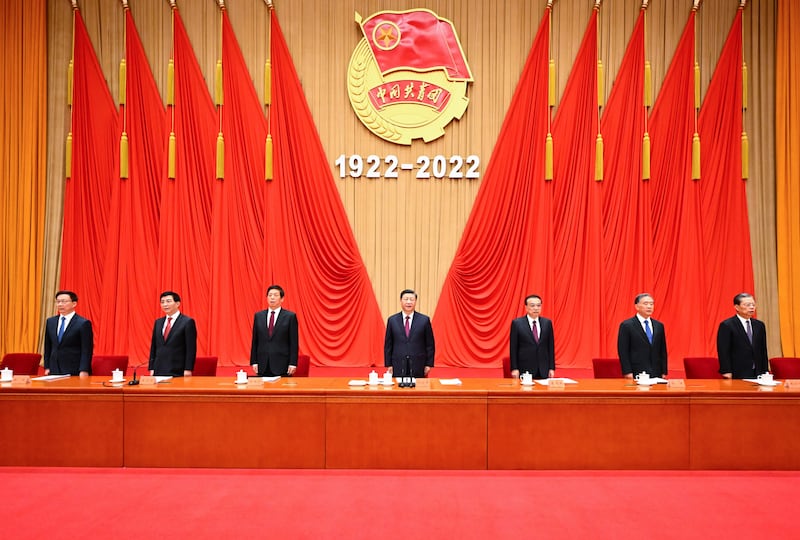As Utah entrepreneurs and policymakers prepare for the China Challenge Summit to be held at Utah Valley University on June 9, it is appropriate to make a few observations about the nuances of domestic currents there that impact China’s relationship with the U.S. and other nations in the Indo-Pacific.
Of particular interest are President Xi Jinping’s domestic objectives that may have influenced China’s alliance with Russia, the role of Taiwan’s soft culture in China’s one-state concept and the “great power” alliance competition in the Indo-Pacific.
The economic shift toward a Chinese socialist society
First, just as U.S. domestic politics influence our foreign policy, the same can be said for China. Chief among these developments is the way in which Xi perceives his opportunity to enshrine his legacy alongside that of Mao Zedong and Deng Xiaoping.
Readers know well that Mao set the standard of a socialist China as a goal for the continent-spanning state in 1949. It would be three decades later that Deng, having “bided his time” in the shadow of Mao, initiated educational and economic reforms that set in motion the greatest reduction in poverty in modern history.
Deng’s reforms were so successful that he suspended the ultimate goal of achieving societywide socialism, instead promoting the unfettered accumulation of wealth. It was during two of Xi’s recent addresses, one on the 100th anniversary of the Chinese Communist Party and one soon thereafter on achieving “common prosperity.” Xi’s announcement marked a shift from accumulating wealth to creating a fully socialist society, in effect elevating himself to the stature of Mao and Deng.
Reading his comments on the push for “common prosperity” is instructive in that it gives a sense of what a Chinese socialist society will look like. Such a system will not eliminate competition or profit incentives, but it will curb excess accumulation of wealth and pursue greater equity between rural and urban inhabitants.
Implementing such a monumental shift will likely complicate China’s foreign relations for the foreseeable future.
The entangled relationship of China and Taiwan
Second, it’s valuable to consider any number of reasons why Taiwan matters to China, not as an act of appeasement, but instead to understand that their ties go far beyond military and diplomatic objectives.
Added to these important considerations, Taiwan has served as something of an “operating system” for Chinese soft culture during the previous three decades. As one English language school in China notes, “Taiwanese pop stars, actors and entertainers are very active in mainland China, and Taiwanese dramas and music constitute a big part of Mandarin language pop culture.”
This was made abundantly clear to me when I traveled to Shanghai in 2008 to broker an enrollment agreement between a private high school and the university where I previously worked.
I met the founder of the school and his administrative assistants. We might as well have been in Taipei, because they were all Taiwanese — lending their expertise to educational uplift on the mainland. All the pop music I purchased while I was in Shanghai? We might as well have been in Taipei because the more sophisticated beats were recorded in Taiwan. All the clever Chinese movies I watched on the 161⁄2-hour flight home? They were shot in Taiwan.
The bottom line is that American policymakers must consider the complexities of how mainland culture is entangled with Taiwanese soft power, as well as the obvious political and military frictions created from working through the long game inherent in what is known as the “One China Policy.”
A dance with China and Russia
Finally, Xi’s unexpected alliance with Russia during the run-up to the Beijing Olympics may suggest an element of gambling on the part of the Chinese president, what with so many domestic and international moving parts.
In its joint statement with Russia, the Chinese reaffirmed the One China Policy in relation to Taiwan, Hong Kong and Macao, but also raised alarm bells at the announcement of a nuclear-powered alliance between the United States, Australia and Great Britain.
The alliance itself demonstrates the willingness of the Biden administration to put Asia at the forefront of U.S. foreign policy and could have been an element in China’s decision to pursue an authoritarian alliance with their neighbors north of the Amur River — Russia. China’s abrupt response, aligning with Russia, may have revealed its grand strategy sooner than it would have liked, casting a die between authoritarian and open societies.
Ultimately, it would be wise for the United States to continue to pursue diplomatic as well as innovative developmental solutions to challenges in Southeast Asia and the Indo-Pacific. Assessing China’s domestic dynamics, as well as its international objectives will serve analysts well in planning for what the social scientist Rush Doshi has aptly named “The Long Game.”
Evan Ward is associate professor of history at Brigham Young University, where he teaches courses on world history.

